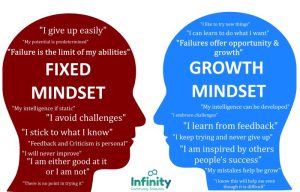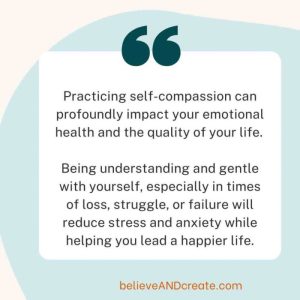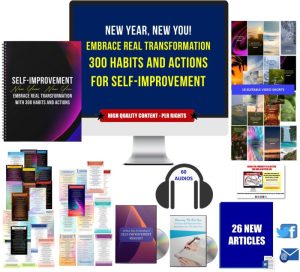Overcoming Opioid Addiction A Comprehensive Guide
Overcoming opioid addiction is a challenging but achievable journey. This guide explores the multifaceted nature of opioid dependence, delving into its physiological effects, the various stages of addiction, and the diverse treatment options available. We’ll examine the crucial role of support systems, address co-occurring mental health issues, and Artikel relapse prevention strategies. This exploration aims to provide a comprehensive understanding of the path to recovery and empower individuals seeking freedom from opioid addiction.
We will navigate the complexities of medication-assisted treatment (MAT), therapeutic approaches, and the invaluable support offered by family, peers, and support groups. Furthermore, we will discuss the critical link between opioid addiction and mental health conditions, emphasizing the importance of integrated treatment. Finally, we’ll highlight the power of self-care, resilience-building, and mindfulness practices in sustaining long-term recovery.
Workplace Mental Health

Prioritizing workplace mental health is no longer a luxury but a necessity for fostering a productive, engaged, and thriving workforce. A mentally healthy workforce translates to increased productivity, reduced absenteeism, and lower healthcare costs. Investing in mental well-being initiatives is an investment in the overall success of the organization.
The Importance of Workplace Mental Health Programs, Overcoming opioid addiction
Robust workplace mental health programs are crucial for creating a supportive and inclusive environment where employees feel comfortable seeking help and prioritizing their mental well-being. These programs can significantly reduce the stigma associated with mental health issues, promoting open communication and early intervention. By offering resources and support, organizations demonstrate a genuine commitment to their employees’ overall health, fostering trust and loyalty.
A culture that values mental health leads to a more engaged and productive workforce.
Strategies for Promoting Mental Well-being in the Workplace
Several strategies can be implemented to cultivate a mentally healthy workplace. These include providing access to Employee Assistance Programs (EAPs), offering mental health workshops and training sessions on stress management and mindfulness techniques, encouraging regular breaks and promoting a healthy work-life balance. Flexible work arrangements, such as telecommuting options, can also significantly reduce stress and improve overall well-being.
Furthermore, fostering a culture of open communication and empathy, where employees feel comfortable discussing mental health concerns without fear of judgment or reprisal, is paramount.
Examples of Successful Workplace Mental Health Initiatives
Many organizations have successfully implemented mental health initiatives with positive results. For example, some companies offer on-site mental health professionals, providing readily accessible support. Others have partnered with mental health organizations to provide employees with discounted or subsidized therapy sessions. Successful initiatives often involve a multifaceted approach, combining education, resources, and a supportive organizational culture. One notable example is a tech company that implemented a mandatory “mental health day” per quarter, encouraging employees to prioritize their well-being without penalty.
This led to a significant decrease in reported stress levels and improved employee morale.
Checklist for Employers to Promote Mental Health in the Workplace
Employers can use this checklist to assess and improve their workplace mental health support:
- Assess current resources: Conduct a thorough review of existing mental health resources and identify gaps.
- Develop a comprehensive policy: Create a clear and accessible mental health policy that addresses issues such as confidentiality, reasonable accommodations, and leave options.
- Provide training for managers and supervisors: Equip managers with the skills to recognize signs of mental health challenges and support their employees effectively.
- Offer access to mental health resources: Provide access to EAPs, mental health professionals, and online resources.
- Promote a culture of open communication: Encourage open discussions about mental health and create a safe space for employees to share their concerns.
- Implement stress reduction strategies: Introduce programs such as mindfulness training, yoga, or meditation sessions.
- Promote work-life balance: Encourage flexible work arrangements and reasonable workloads.
- Regularly evaluate and improve: Conduct regular evaluations to assess the effectiveness of the program and make necessary adjustments.
Personal Growth and Self-Care

Recovering from opioid addiction is a significant journey, demanding both physical and emotional resilience. A crucial element often overlooked is the importance of prioritizing personal growth and self-care. This isn’t a luxury; it’s a fundamental aspect of sustaining long-term recovery and building a healthier, more fulfilling life. By nurturing your well-being and fostering personal development, you lay a strong foundation for lasting sobriety and overall improved mental health.Self-care is the intentional practice of taking actions to preserve and enhance your physical, mental, and emotional well-being.
It’s about recognizing your needs and proactively addressing them, rather than reacting to crises. Prioritizing self-care is not selfish; it’s essential for preventing relapse and building the strength needed to navigate life’s challenges.
The Importance of Self-Care for Mental Health
Self-care significantly impacts mental health during and after recovery from opioid addiction. Neglecting self-care can lead to increased stress, anxiety, depression, and a heightened risk of relapse. Conversely, consistent self-care practices can reduce stress levels, improve mood regulation, and enhance coping mechanisms. This proactive approach to well-being strengthens resilience and provides individuals with the tools to manage triggers and cravings more effectively.
Regular self-care helps build a buffer against the overwhelming pressures that can contribute to relapse.
Examples of Self-Care Activities
Engaging in self-care activities doesn’t require elaborate plans or significant financial resources. Simple, everyday practices can make a considerable difference. These can include physical activities like regular exercise, even a short walk; mindfulness practices such as meditation or deep breathing exercises; healthy eating habits that prioritize nutritious foods; adequate sleep; engaging in hobbies or activities that bring joy and relaxation, such as reading, listening to music, or spending time in nature; and connecting with supportive friends and family.
Finding a support group specifically for those recovering from addiction can also be a vital self-care strategy.
Benefits of Setting Boundaries and Prioritizing Self-Care
Setting healthy boundaries is a critical component of self-care. This involves learning to say “no” to requests that compromise your well-being or recovery. It means protecting your time and energy for activities that support your mental and physical health. Prioritizing self-care allows you to focus on your needs, reducing stress and preventing burnout. This, in turn, fosters a sense of self-respect and control, both crucial for long-term recovery.
Individuals who effectively set boundaries and prioritize self-care are better equipped to handle difficult situations and less likely to experience relapse.
Personal Growth and Long-Term Recovery
Personal growth is an ongoing process of self-discovery and development. It involves identifying personal strengths and weaknesses, setting goals, and working towards achieving them. This process empowers individuals to build self-esteem, confidence, and a stronger sense of purpose. In the context of recovery, personal growth provides a positive focus, replacing the negative self-image and lack of purpose often associated with addiction.
Developing new skills, pursuing education or vocational training, and engaging in activities that foster personal growth can lead to a more fulfilling and meaningful life, reducing the likelihood of relapse. For example, someone might pursue further education to gain new job skills, volunteer to help others, or engage in creative pursuits like painting or writing. These activities not only contribute to personal growth but also build self-esteem and a stronger sense of identity outside of addiction.
The journey to overcoming opioid addiction is deeply personal, requiring courage, resilience, and unwavering support. While challenges are inevitable, the path to recovery is paved with hope and the possibility of a fulfilling life free from addiction’s grip. By understanding the complexities of addiction, accessing appropriate treatment, building a strong support network, and prioritizing self-care, individuals can achieve lasting recovery and reclaim their lives.
Remember, seeking help is a sign of strength, and recovery is possible.
Top FAQs: Overcoming Opioid Addiction
What are the long-term effects of opioid addiction?
Long-term effects can include chronic pain, organ damage, mental health issues, and increased risk of overdose.
Is it possible to recover from opioid addiction completely?
Yes, complete recovery is possible with appropriate treatment and ongoing support.
How can I help a loved one struggling with opioid addiction?
Educate yourself about addiction, encourage professional help, offer unconditional support, and avoid enabling behaviors.
What are some warning signs of opioid overdose?
Slowed breathing, blue or gray coloring of the lips and fingertips, loss of consciousness, and pinpoint pupils.



